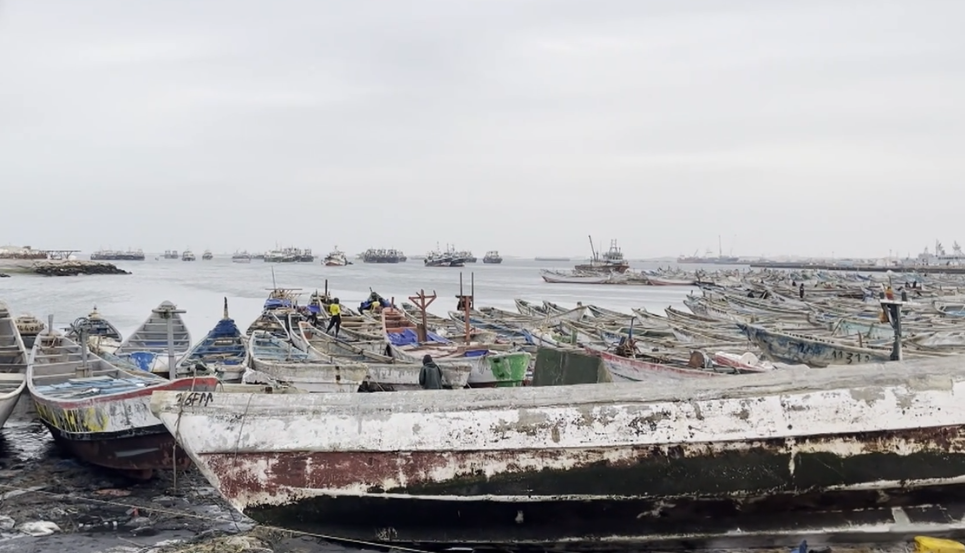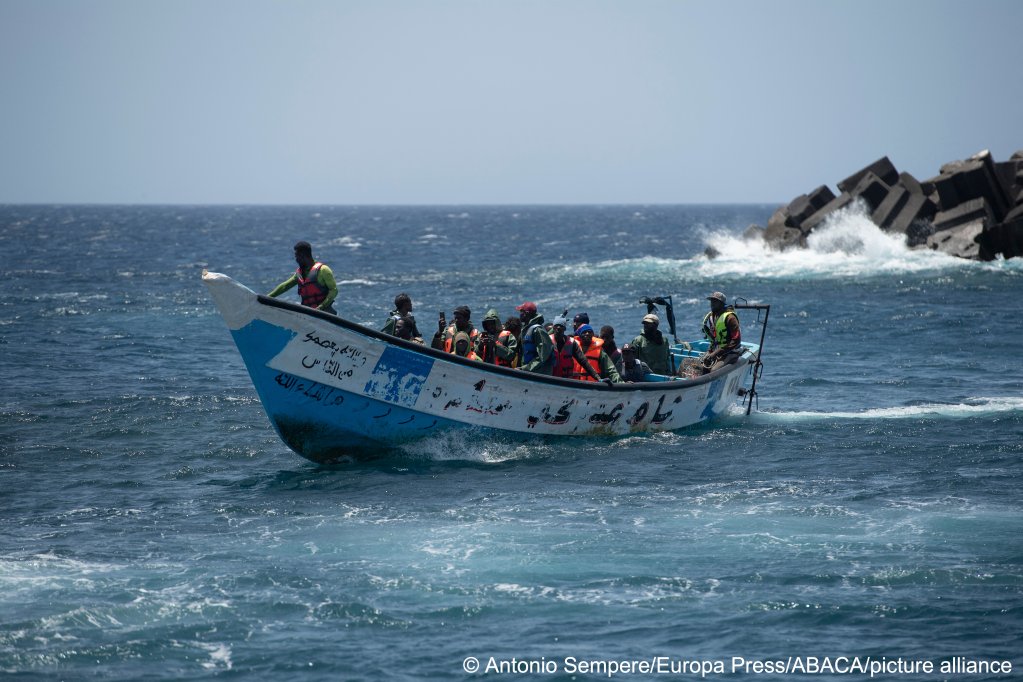Spain's new agreements with Gambia and Mauritania aim to manage rising migration flows through a circular migration framework. By offering temporary work opportunities, the policy seeks to address Spain's labor shortages while providing legal pathways for migrants.
Spain has signed a number of agreements and Memorandums of Understanding (MoUs) with Gambia and Mauritania to establish a formal framework for circular migration, following a three-day tour of West Africa by Prime Minister Pedro Sánchez. The move comes as the Canary Islands continue to see a major increase in irregular migration.
In the first eight months of 2024, Spain saw a 62.8 percent increase in migrant arrivals (35,456), with 25,524 coming via the archipelago, a 123 percent rise from the previous year. Migrants include those fleeing violence in Mali and the Sahel Region, as well as young people from Senegal, Mauritania, and other West African nations seeking better opportunities abroad.
Local politicians on the Canary Islands have accused Madrid of "abandoning" the islands as they continue to struggle with the high numbers of arrivals.
However, Spain’s government is hoping the new circular migration plan will help to manage the rising number of arrivals while also countering current labor shortages in the country.
Also read: Balearic Islands and Canaries: Ongoing migrant arrivals further strain reception capacities
What is circular migration?
Circular migration is a policy framework that allows individuals to move between their home countries and a host country for work or study on a temporary basis.
It potentially offers a safer alternative to irregular migration, reducing the risks of exploitation and dangerous journeys that migrants often face when seeking to enter Europe.
The three coastal African countries have become a key departure point for migrants trying to reach the Canary Islands. The so-called Atlantic route has been the scene of countless tragic events, including the recent capsizing of a boat carrying 300 migrants off Mauritania, resulting in numerous deaths and disappearances.

Unlike permanent migration, circular migration involves a cyclical pattern where individuals return to their country of origin after completing a fixed-term contract abroad. This system facilitates legal migration while meeting labor needs in the host country and supporting economic development in the source country.
Overall this system will provide temporary work permits for migrants, allowing them to work in Spain for a fixed period before returning home.
Spain already has similar agreements with Morocco and some Latin American countries, which allow temporary stays of up to nine months. In 2022, 16,000 people utilized this system.
Also read: Assessing Spain's migrant work reform, two years on
How does circular migration work?
Agreements with Mauritania include enhancing security cooperation to combat human trafficking and smuggling networks. Spain is also addressing the need for regulated migration through humanitarian and orderly processes.
Spain's existing agreement with Senegal, which was extended in March, will seek to promote temporary work opportunities in Spain and vocational training in the west African country. Sánchez announced the “Alliance Africa Advances” initiative, which includes vocational training and expanding internet access.

Spanish law enforcement officers are currently deployed in The Gambia to assist with border enforcement. Two police officers and seven civil guard members from Spain have been deployed to the country.
Under these agreements, migrants from Gambia and Mauritania will be granted temporary work visas to fill labor shortages in Spain. These visas allow workers to stay in Spain for a specified period, before returning to their home countries.
The process will require coordination between Spanish authorities and the governments of Gambia and Mauritania. The Spanish government will provide job opportunities, and the source countries must help pre-select candidates who meet the required criteria.
Recent reforms have simplified the administrative processes for circular migration, allowing for longer-term contracts and reducing bureaucratic hurdles for both recruiting companies and migrant workers.
Also read: Spain and Mauritania announce cooperation on migration
Impact on countries of origin
The agreements with Spain can have significant implications for the countries of origin. For example, remittances from migrants working in Spain contribute to the economies of Gambia and Mauritania. These funds can support local development, education, and healthcare initiatives.
In addition, migrants often return home with new skills and experiences, which can benefit their communities and contribute to local economic development. This skill transfer can foster entrepreneurship and innovation.

If carried out successfully, circular migration could provide an organized alternative to irregular migration, potentially alleviating pressures on these countries to manage large numbers of people attempting to migrate irregularly.
On a political level, these agreements also seek to enhance diplomatic and economic relations between Spain and the countries of origin, paving the way for further cooperation in various sectors.
Limited impact on overall migration?
However, Spanish opposition parties have criticized the circular migration policy, fearing it may encourage irregular immigration. Critics argue that it could exacerbate the current migration crisis, with some accusing the policy of potentially leading to increased migrant flows.
Experts like Madeleine Sumption from the Migration Observatory is concerned that that circular migration programs might only have a limited impact. She told inews that “if work visa programs are very large and target the same groups of people who would otherwise move without permission, they may have an impact. If the programs are small, however, they risk rapidly becoming oversubscribed and those who don't get a place may still decide to take unauthorized routes.”
A recent study published in April 2024 by the Peterson Institute found that legal visas can reduce illegal crossings but not drastically, noting a modest correlation between legal and illegal migration.
While legal migration can provide an alternative to a number migrants seeking to reach Europe, it does not address the root causes of migration such as poverty, conflict and political persecution.
Also read: 230,000 migrants in Europe through Canary Islands in 30 years
Why is circular migration gaining interest in Europe?
The Spanish economy has recently come out of a long recession with migrant labor playing a key role in the economic recovery. However, the country like so many of its European neighbors is still suffering from labor shortages, with a need for a further 200,000 to 250,000 immigrants annually to support their welfare and pension systems.
Other European governments are also increasingly adopting circular migration policies, as they face labor shortages in sectors such as agriculture and seasonal work. Circular migration provides a legal and controlled method to address these shortages without long-term commitments.
By employing temporary workers, Spain and other EU countries can boost their economies while avoiding the long-term costs associated with permanent immigration. This approach supports economic growth and ensures that labor needs are met efficiently.

Through these agreements, workers benefit from legal employment, fair working conditions, and the opportunity to return to their home country with accumulated savings and skills. Spain gains a reliable source of labor to fill critical positions, boosting various sectors of the economy. The circular migration system also minimizes the administrative burden associated with yearly visa renewals.
Furthermore, by providing a legal pathway for migration, circular migration helps undermine smuggling networks and reduces the influence of criminal organizations that exploit migrants.
Also read: Unrealized potential: The challenge of 'brain waste' among Europe's skilled migrants
With AP
